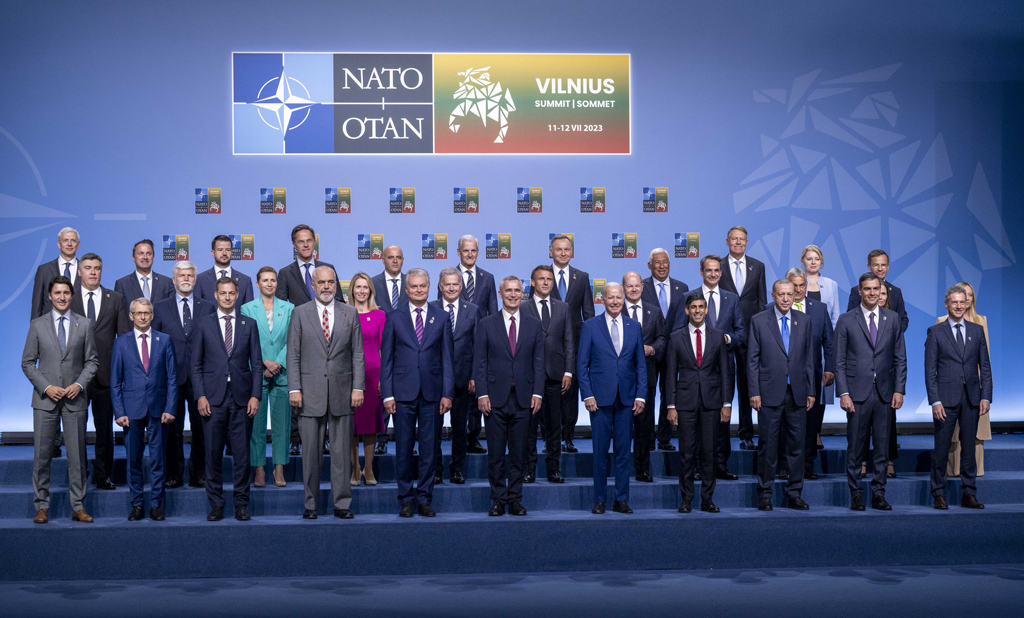
Economic Development and the Presidential Government System
The new system will establish a unified executive branch, improve coordination among economic agencies.
Share
Turkey has officially entered the campaign trail for the critical referendum on April 16 with the publication of the relevant law regarding the proposed constitutional reform for a presidential government system in the Official Gazette. Over the course of the next two months, heated debates will continue between the proponents of the "yes" and "no" positions concerning the potential impact of the reform on the balance between the executive, legislative and judicial branches. Legal issues pertaining to checks and balances in the existing and the proposed systems as well as concerns related with the separation of powers for democratic consolidation will be high on the agenda.
Seen through the prism of long-term political transformation, the constitutional reform toward a presidential government system indicates a paradigmatic change in Turkish politics through which mechanisms of the institutional tutelage might finally be bypassed and democratic legitimacy could be directly reflected in the public administration. The new system is meant to allow fast and effective policy making, eliminate the current bureaucratic red tape and the institutional tutelage by incorporating socio-political dynamics into governance directly through democratic presidentialism. With the added advantages of getting rid of the systemic anomalies and divided responsibilities created by the coexistence of the president alongside the prime minister -- both of whom are elected in a popular vote under the current "two-headed" system - the new system is likely to improve the performance of the executive branch. Yet, it would not suffice to portray the proposed constitutional amendment package as merely a legal restructuring aimed at a reformulation of the executive and legislative superstructure. To the contrary, the presidential government system promises to trigger the radical restructuration of the macroeconomic governmental policies as well as its institutional architecture while sidelining organized monopolies and tutelage mechanisms that have limited Turkey's economic potential for decades.
The new system will establish a unified executive branch, improve coordination among economic agencies, allow better interference against market failures to improve the efficiency of the market mechanism, facilitate protection of Small and Medium Enterprises (SMEs) against bigger conglomerates and pave the way for targeted social reform to reduce regional and social inequalities. So much so that key governance problems that hindered the execution of critical structural reforms over the course of the last 15 years, despite relative politico-economic stability, could finally be resolved. As the Turkish economy has been placed on a path of moderate growth in the wake of several political crises from the Gezi Park protests to the failed coup attempt on July 15, 2016, the focus of debates on socio-economic development has to be the restoration of fast and sustainable growth. In this context, fundamental goals regarding policy making require strong and systematic coordination among state agencies, effective interaction in the private sector and civil society. Policy goals require strong and systematic policy coordination among state agencies, as well as effective interaction with the private sector and civil society. These include monetary, fiscal and procurement policies to permanently reduce the current account deficit; micro-sectoral policies to increase high-tech manufacturing and export capacity; fiscal reforms to reduce the burden on productive and export-oriented sectors; improvement of the investment climate to spur growth and increasing foreign direct investment (FDI); reducing energy costs to support local production and processing of raw materials; creation of new financial instruments to increase national savings while improving local financing capacity for new investments; galvanizing the legal infrastructure of the business environment; raising human capacity through improved university-industry linkages; alleviating private monopolies and triggering sectoral productivity increases through stricter competition policy; alleviating regional disparities through better coordination of regional development agencies.
For the successful realization of all these goals under the coordination of a unified and strong executive which could oversee the formulation of a new development narrative based on real economy, industry-technology linkages, modern agriculture and information technologies, Turkey desperately needs the constitutional reform. Maintenance of fiscal discipline and price stability while implementing an employment-friendly, inclusive, sustainable and equitable growth model requires effective coordination of policy realms such as education, industry, agriculture, technology, human resources, money and fiscal policy at a time when exchange rate wars and neo-protectionism rages in the world economy. Regarding Turkey's administrative tradition, there is no precedent for institutional bodies such as the Super-Ministries seen in the developmental states in East Asia - achieving centralization at the top of the executive around the presidency seems to be the only viable option for better policy coordination. The constitutional amendment will also permanently eliminate the economic tutelage of large holding companies organized around the Turkish Industry and Business Association (TÜSİAD) by ensuring political stability and robust executive authority that leaves no room for politico-economic manipulation.
[Daily Sabah, February 18, 2017]
Tags »
Related Articles







